
Heart disease, also known as cardiovascular disease, causes more deaths each year in the United States than all types of cancer and chronic lower respiratory disease combined, according to the American Heart Association (AHA). And stroke is responsible for one out of every 21 deaths in the U.S., according to the same source.
Factors like not getting enough physical exercise, stress and underlying health conditions can contribute to heart disease. But a non-heart-healthy diet can also increase the risk of stroke, heart attack and cardiovascular disease, according to the AHA.
Even worse, you may not even realize just how damaging your diet can be to your heart. Some of the worst foods for your heart may even be a regular part of your daily diet.
Read on for some of the worst types of food and drink for your heart along with alternatives for better heart health.
1. Fatty red meats

Step away from that cheeseburger or juicy steak if you want to protect your heart health. Research indicates that people who eat red meat daily have triple the levels of trimethylamine N-oxide (TMAO) compared with people who primarily eat white meat or non-meat protein sources, according to the National Institutes of Health (NIH). TMAO is a chemical formed by gut bacteria that worsens cholesterol deposits in the artery wall and is associated with heart disease.
The good news is that high TMAO levels were reversible among participants in a study conducted by researchers at the Cleveland Clinic. When study participants discontinued their red meat diet, replacing it with a white meat or non-meat diet for one month, their TMAO levels subsided.
The American Heart Association recommends limiting red meat and choosing fish and poultry instead. Just make sure you trim away fatty areas and skin from those meats before cooking for even better heart health.
2. Soda and other sugary drinks
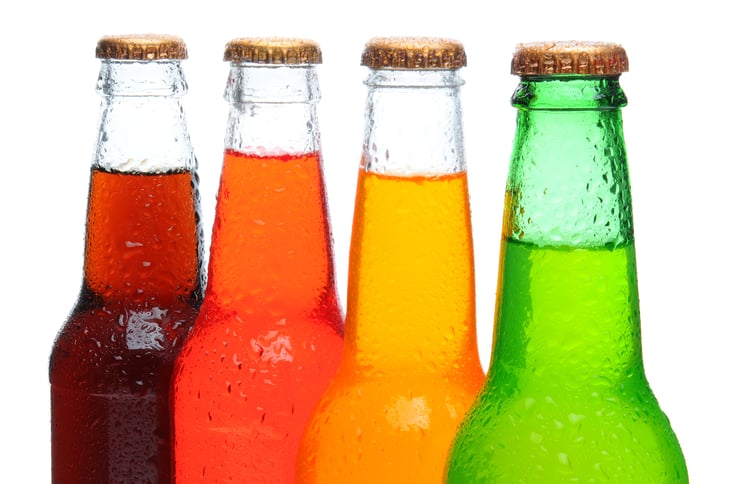
Next time you want to grab a soda, energy drink, sports drink, sweetened sparkling water or a juice that’s loaded with high-fructose corn syrup, instead refresh yourself with a glass of water or another beverage that doesn’t contain a high sugar content.
Consuming high-sugar drinks frequently is associated with high cholesterol and high blood pressure, factors that contribute to heart disease, according to a study published in the Journal of the American Heart Association. But it’s not just your heart that high-sugar beverages can harm.
Research also links frequent consumption of high-sugar drinks with weight gain, obesity, type 2 diabetes, kidney diseases, liver disease, tooth decay and gout, which is a type of arthritis, according to the Centers for Disease Control and Prevention (CDC).
The CDC recommends switching to plain water, 100% fruit juice or water sweetened with a splash of 100% fruit juice instead of reaching for a sugary beverage.
3. Artificially sweetened drinks
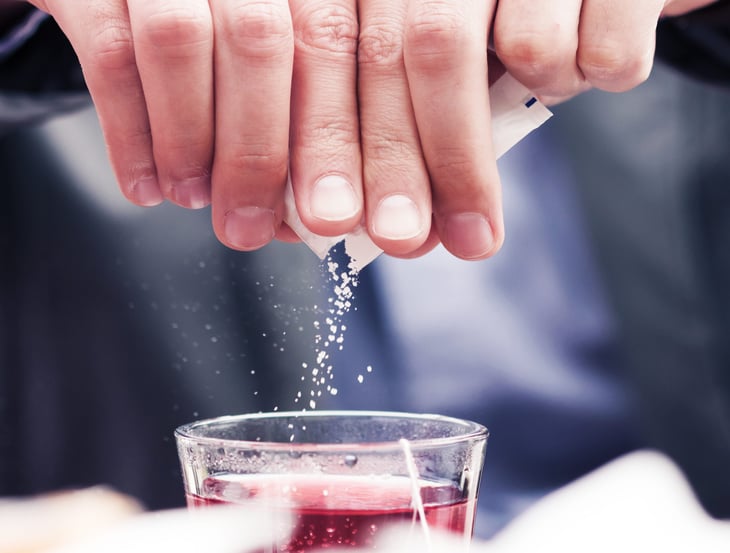
Sugary drinks aren’t the only beverages linked with a higher risk for heart disease, according to the American Heart Association (AHA). If you’re craving a diet soft drink, powdered drink, flavored milk or another drink that contains aspartame K, acesulfame, sucralose, saccharin or another artificial sweetener, reach for a naturally sweetened drink like pure orange, vegetable or another juice instead.
Consuming 2 liters (about 67 ounces) per week of drinks containing artificial sweeteners may put you at a 20% higher risk of developing an irregular heart rhythm (atrial fibrillation), according to a 2024 analysis and 10-year follow-up on data from more than 201,000 participants in the UK Biobank. Conversely, the same study suggested that drinking 1 liter or less of pure juice may lower your risk of atrial fibrillation by as much as 8%.
4. High-fat dairy products

Frequently consuming dairy products that have a high-fat content — such as whole-fat milk, butter, cream and cream cheese — can raise your risk for heart disease, according to the Dietary Guidelines for Americans from the U.S. Department of Health and Human Services (HHS).
You don’t have to live a totally dairy-free life for heart health, however. HHS recommends choosing low-fat dairy options instead. For example, instead of whole milk, use fat-free or low-fat (1%) milk or soy milk supplemented with calcium, vitamin A and vitamin D.
Rather than cooking with butter, switch to vegetable oils such as canola, corn, olive, peanut, safflower, soybean or sunflower to keep your heart healthy. Just make sure you avoid coconut and palm oils, which are high-fat oils.
5. Coconut and palm oil
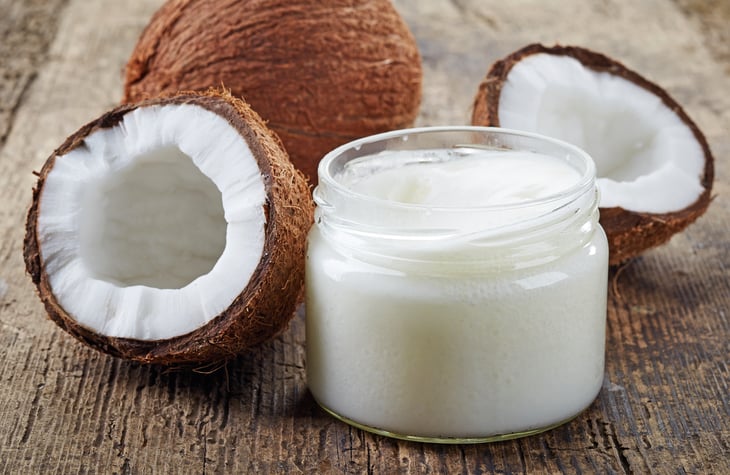
If you’re looking for heart-healthy cooking alternatives to butter or the partially hydrogenated fats in margarine or shortening, coconut and palm oils aren’t the answer. In fact, coconut oil is 80%-90% saturated fat, according to the Harvard T.H. Chan School of Public Health. That’s about 30% more saturated fat than butter, which contains around 50% saturated fat. Palm oil also contains about 50% saturated fat, according to the USDA.
The AHA recommends against cooking with coconut, palm or palm kernel oils. Instead, use healthier cooking oils such as corn, safflower and sunflower oils.
6. Salt
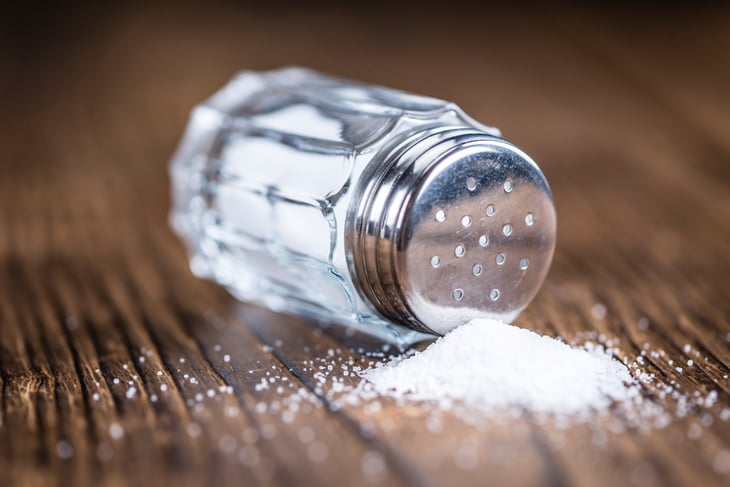
Most Americans (about 90%) consume too much sodium, increasing their risk of stroke, high blood pressure and heart attack, according to the U.S. Department of Health and Human Services.
And the scary part is that it’s easy to unwittingly overload on sodium. Even if you’re careful about how much salt you shake onto your food or meals that you’re cooking, salt is present in most processed foods, even ones you may not suspect like bread, sauces, condiments and salad dressings.
The good news is that it’s easy to avoid overloading on sodium by checking the nutrition facts label on foods before you buy and choosing foods labeled “low-sodium” or “no salt added.”
To help protect heart health, choose foods that have a sodium content of 5% daily value (DV) or less. And definitely stay away from foods with greater than a 20% DV, which is high.
7. Alcohol

Drinking alcoholic beverages regularly can raise your blood pressure, increase fats in your blood that lead to high cholesterol and worsen or raise your risk for heart failure, according to the National Heart, Lung and Blood Institute (NHLBI).
The NHLBI recommends limiting your alcohol intake or cutting out alcohol altogether. If you do drink alcohol, the American Heart Association recommends limiting your alcohol consumption to no more than two drinks per day for men and one drink per day for women.
8. Smoked and cured meats
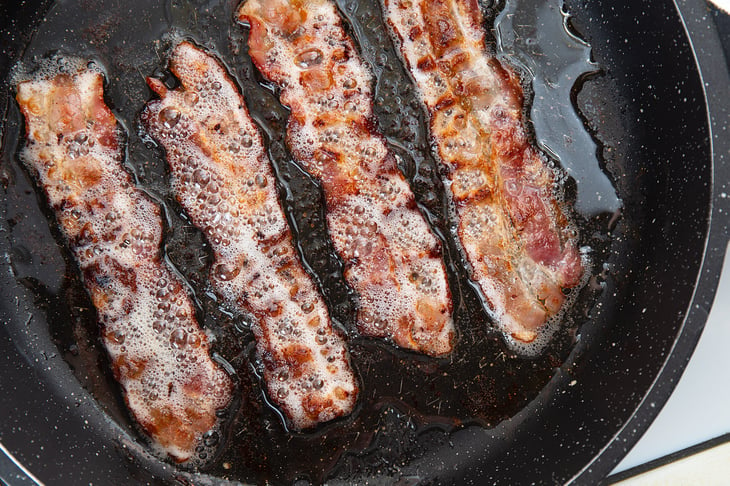
Grabbing a slice of processed deli meat may seem like a convenient way to boost your daily protein intake without eating a burger or another red meat associated with a higher incidence of cardiovascular disease. But some research indicates eating salty, processed meats may be even worse for your heart than unprocessed red meats, according to the AHA.
Salami, hot dogs, bacon, pepperoni, ham and processed turkey typically contain high amounts of salt and nitrites, a curing agent used to preserve meats that’s been associated with certain cancers. Many processed meats are also high in saturated fats, cholesterol and heme iron, a nutrient that in high amounts has been linked with heart disease.
The AHA recommends avoiding processed meats for better heart health. Instead substitute other protein sources such as unprocessed fish, poultry, nuts, beans and legumes like split peas, chickpeas and lentils.
9. Doughnuts

Many doughnuts are full of trans fats, hydrogenated oils and tropical oils, raising your risk for heart disease and increasing levels of LDL (low-density lipoprotein) cholesterol — also known as “bad” cholesterol — according to the AHA. For instance, Dunkin’ Donuts fries its doughnuts in palm oil, which contains no trans fats, but still has about 50% saturated fat, something the AHA recommends against.
Next time you crave a doughnut, the AHA recommends eating a bagel or piece of toast instead. Bagels and doughnuts aren’t that far apart in calorie count — bagels at Einstein Bros. contain anywhere from 260 to 370 calories while donuts at Dunkin’ Donuts range from 230 to 350 calories — but the saturated fat content in doughnuts is much higher. The saturated fat content in Einstein Bros. bagels ranges from 0 grams to 2 grams per bagel. Compare that to the saturated fat content in the Dunkin’ Donuts line, which ranges from 4.5 grams to 6 grams per doughnut.
10. Fried chicken (and other fried foods)

Just because the U.S. has a National Fried Chicken Day doesn’t mean this tasty food is good for your heart. One study of postmenopausal women aged 50 to 79 years old associated fried chicken and other deep-fried foods with a 12% higher risk of cardiovascular-related death and a heightened risk of death from any cause by 13%, according to the Physician’s Committee for Responsible Medicine.
And fried chicken isn’t the only fried food that’s bad for your heart. Fried foods raise your LDL (bad) cholesterol and increase the risk of stroke and heart disease, according to the National Library of Medicine.
Next time you crave fried chicken, try the AHA’s Air Fryer Crispy (Un) Fried Chicken recipe instead. This air-fried chicken contains only 2 grams of saturated fat. That’s less than the nearly 4.5 grams of saturated fat in a fast-food fried chicken drumstick, according to the USDA. It’s important to note, however, that while air fryers are considered a healthier alternative to deep-fried foods, one study found that sardines fried in an air fryer may increase cholesterol oxidation products (COPs) levels, which are associated with heart disease.





Add a Comment
Our Policy: We welcome relevant and respectful comments in order to foster healthy and informative discussions. All other comments may be removed. Comments with links are automatically held for moderation.